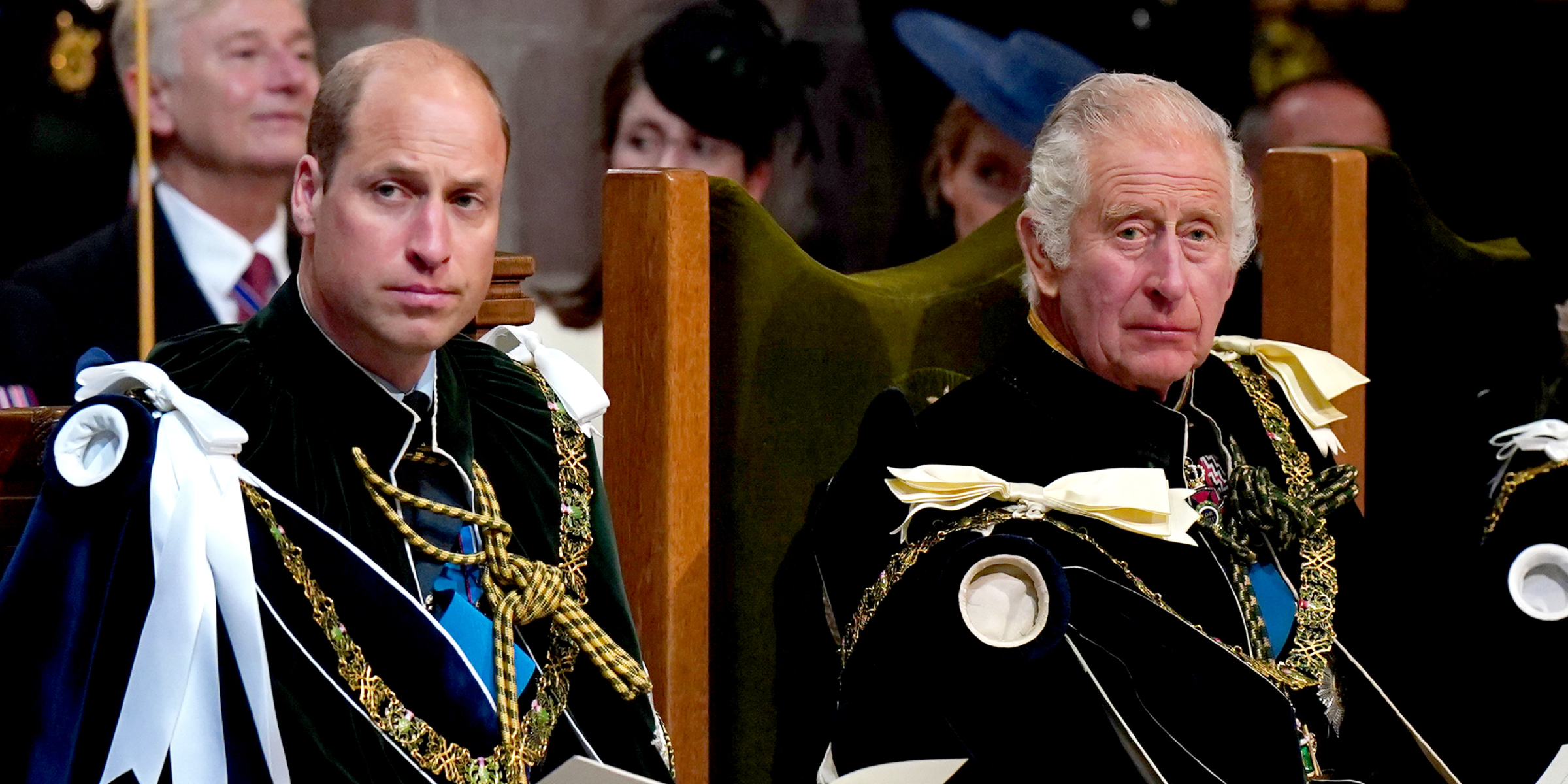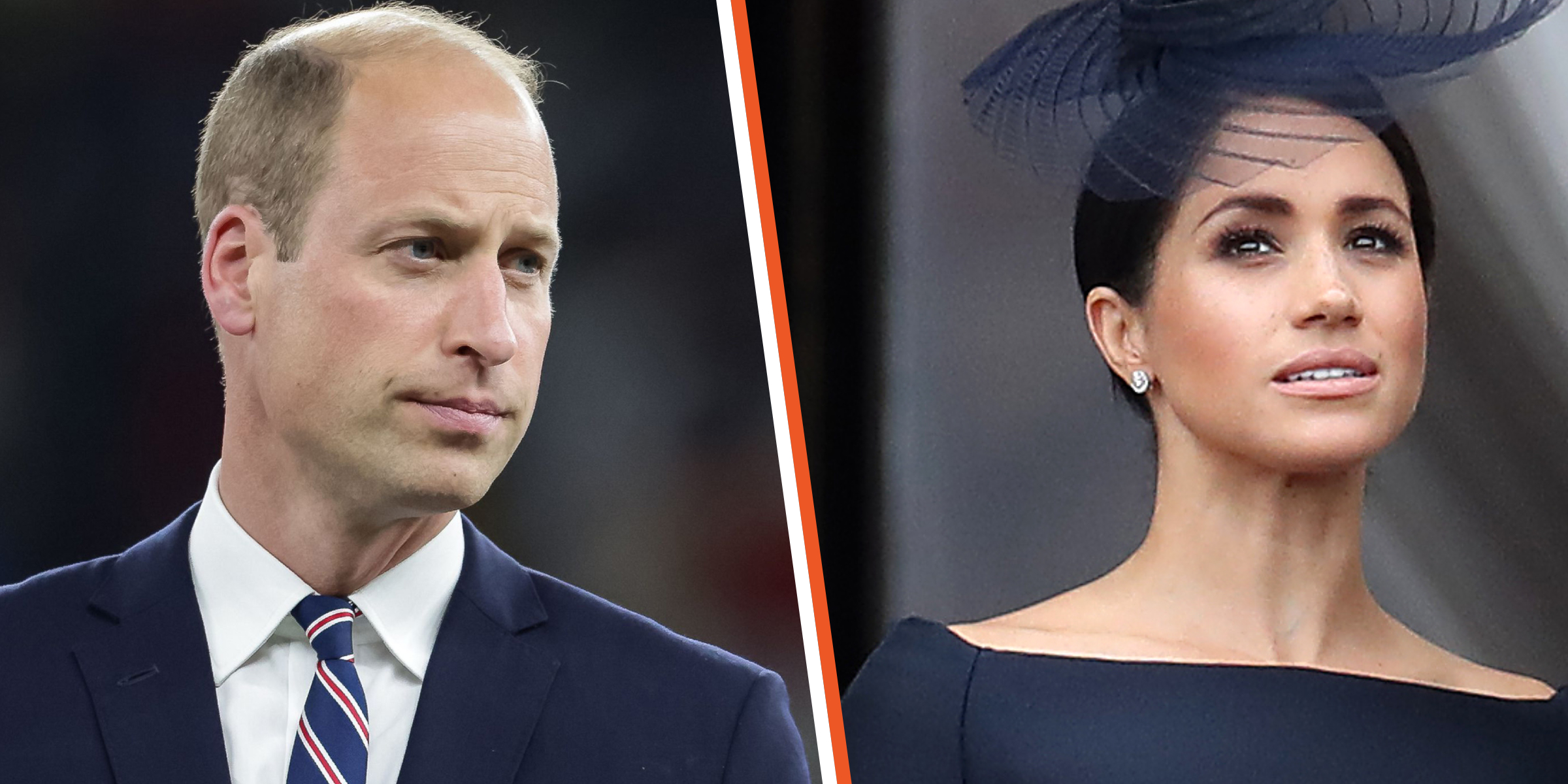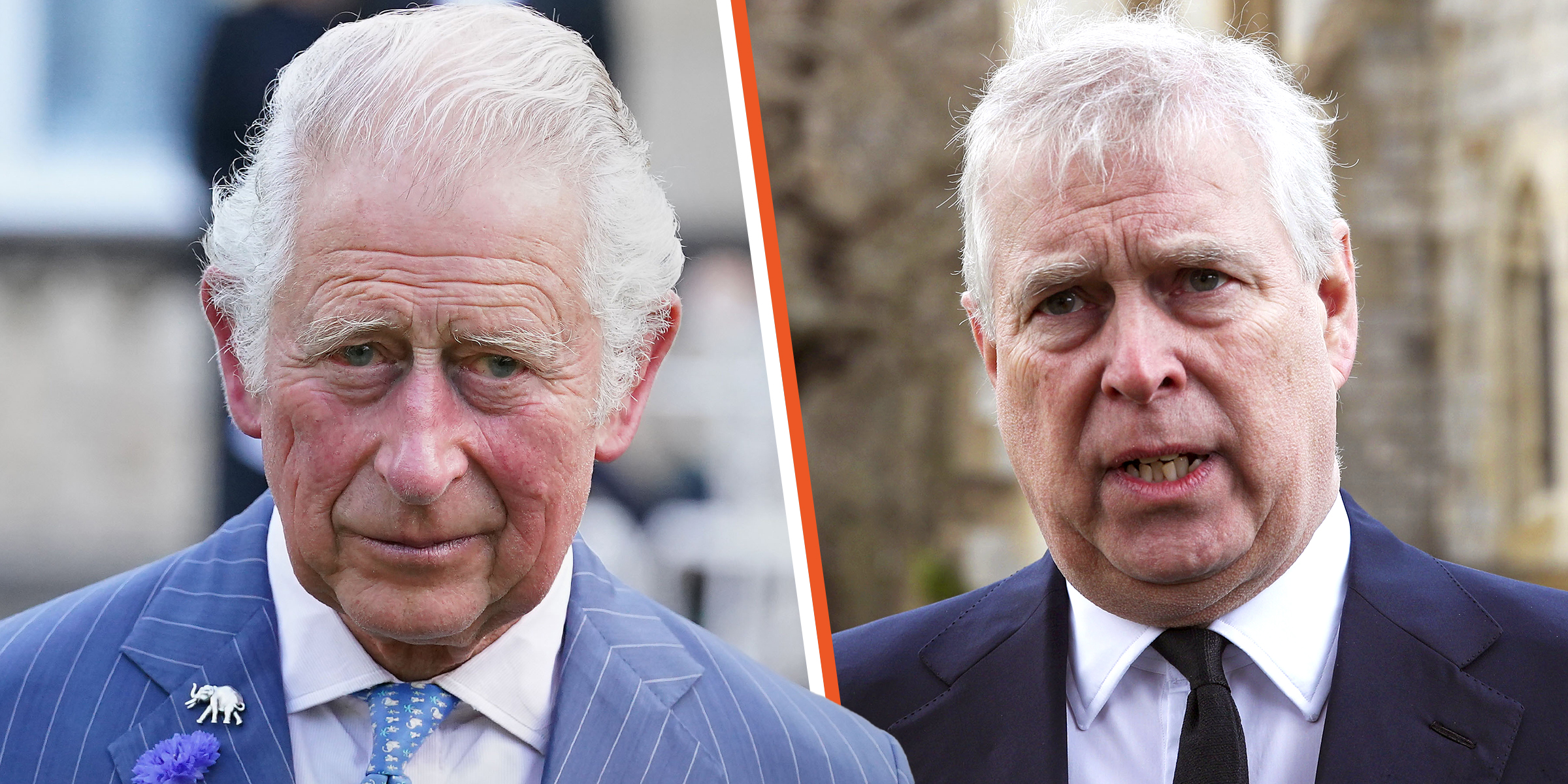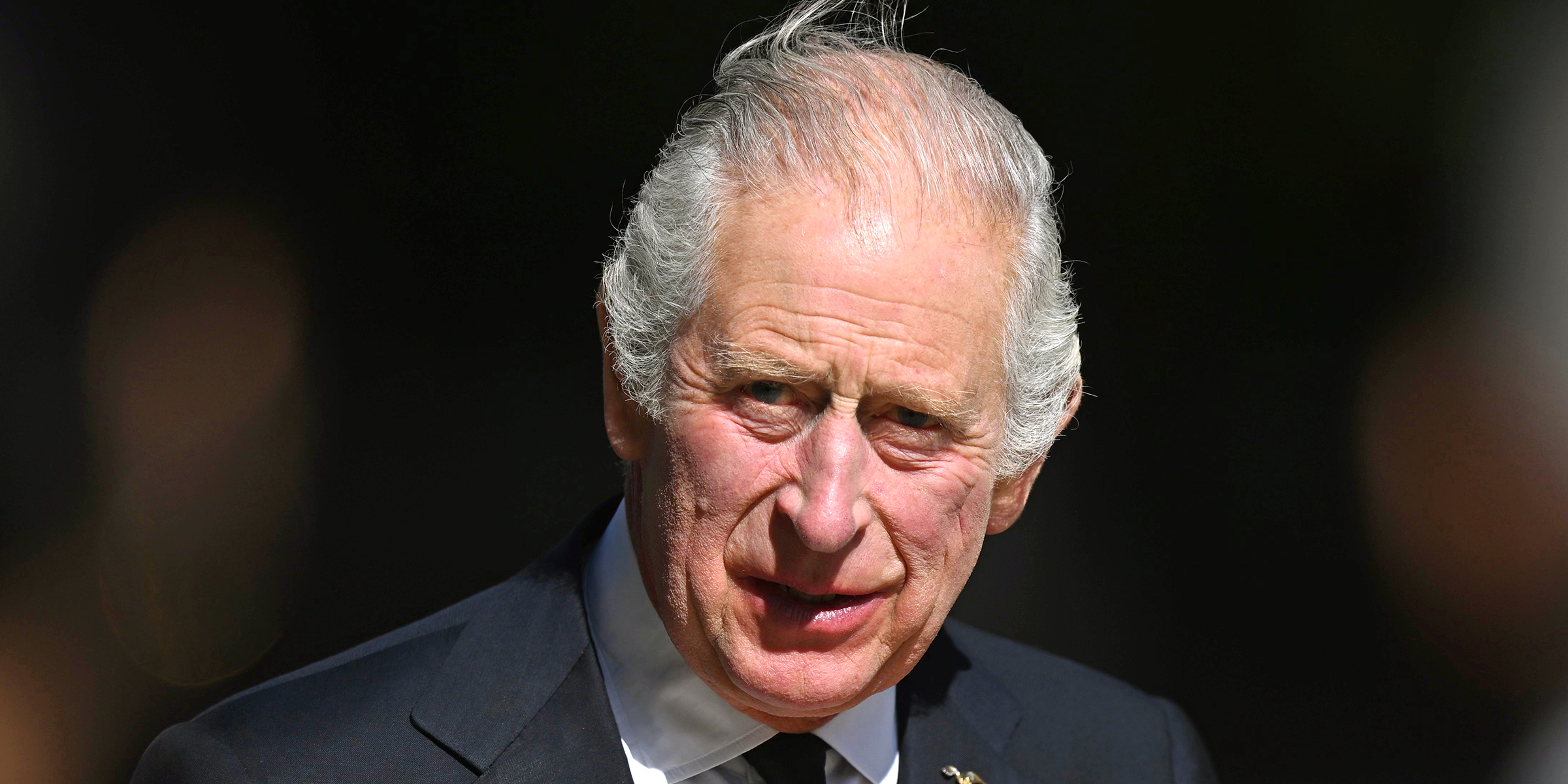
This country moves to break away from its British monarchy, aiming for full independence, as revelations about the royal family’s wealth spark deeper scrutiny.
Jamaica has introduced a bill to remove King Charles III as its head of state, marking a critical step toward becoming a republic. The legislation, presented in parliament by Minister of Legal and Constitutional Affairs Marlene Malahoo Forte, responds to widespread calls from Jamaicans to sever ties with the British monarchy.
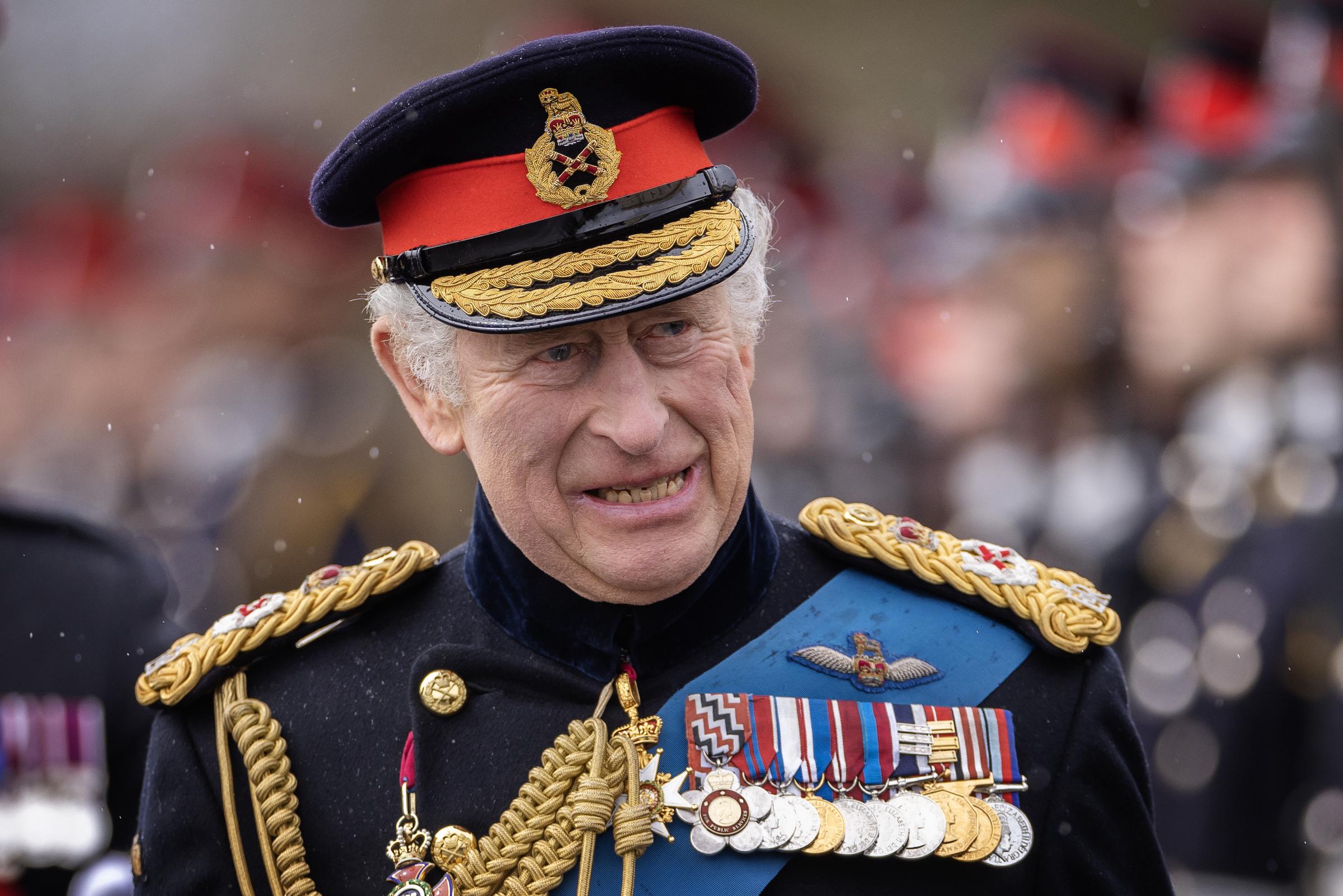
King Charles III inspects the 200th Sovereign’s Parade at the Royal Military Academy Sandhurst in Camberley, England, on April 14, 2023 | Source: Getty Images
This push for change comes after a long history of British colonial rule. England took control of the island in 1655 and built a plantation economy based on sugar, cocoa, and coffee, using enslaved labor. Slavery was abolished in 1834, freeing thousands who later became small farmers.
Over time, the country gained more independence, joining the Federation of the West Indies in 1958, leaving it in 1961, and achieving full independence in 1962. However, the British monarch remained the ceremonial head of state, represented by a governor general.

Princess Catherine and Prince William attend the Commissioning Parade at the Jamaica Defence Force during their Royal Tour of the Caribbean on March 24, 2022 | Source: Getty Images
“Every year when we celebrate independence on August 6, the nation is invited to reflect on its achievements since independence and what remains to be done, and every year the question is asked when are we going to abolish the monarchy and have a Jamaican head of state,” Malahoo Forte shared, as reported by The Guardian on December 13.

Marlene Malahoo Forte at a World Economic Forum meeting on January 29, 2011 | Source: Getty Images
The new bill aims to replace the monarchy with a Jamaican president and also proposes reforms such as expanding the senate to include members appointed independently of political parties. However, the path to reform is complex.
The bill requires committee scrutiny, parliamentary approval, and a national referendum before it can become law. Opposition leaders have criticized the absence of judicial reforms in the bill, particularly its continued reliance on the UK-based privy council instead of the Caribbean Court of Justice.
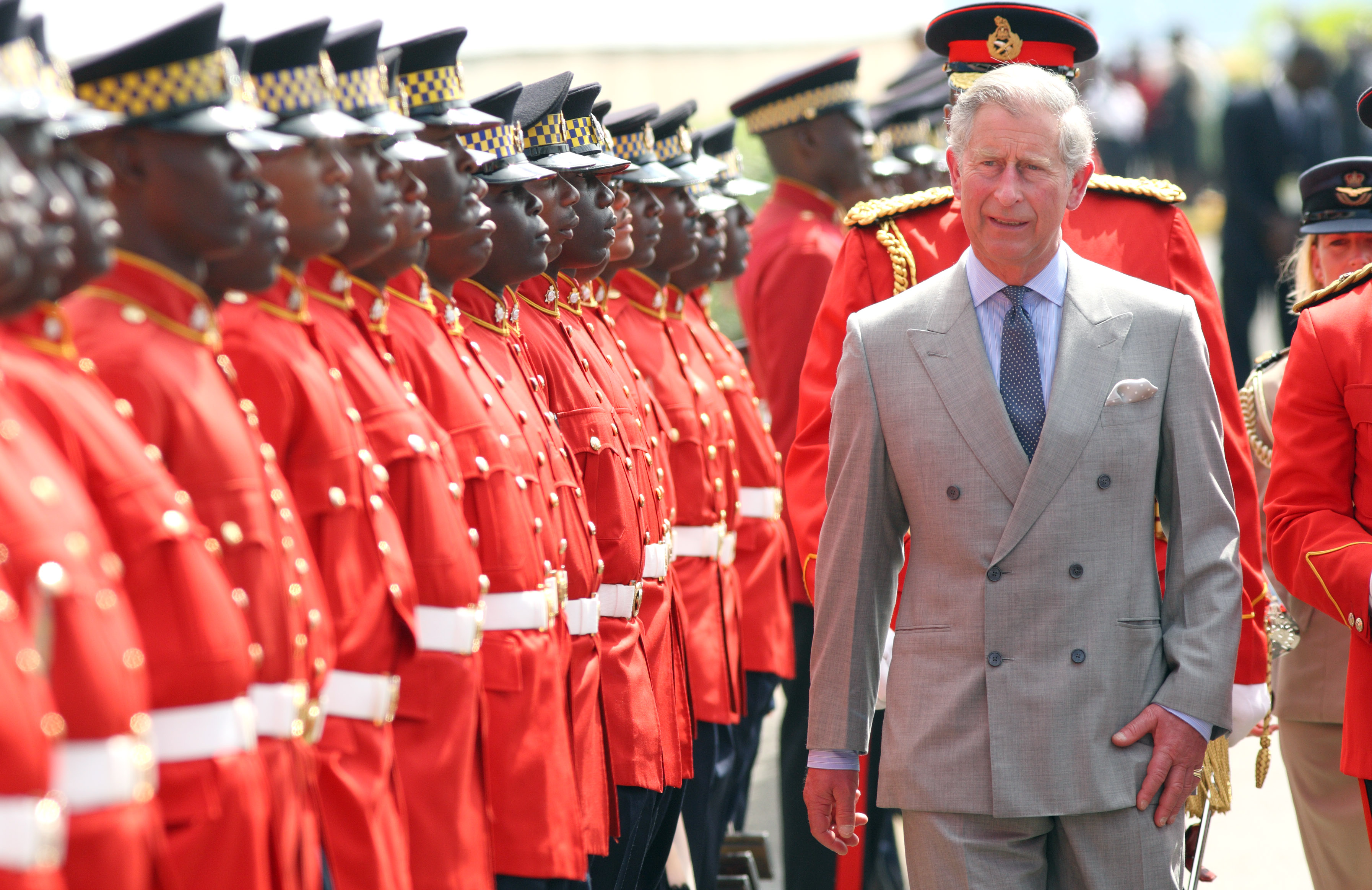
King Charles III arrives at Victoria Pier in Kingston, Jamaica, as part of their Caribbean tour on March 12, 2008 | Source: Getty Images
“We do not believe you can say that you’re fully decolonised if you still retain the privy council as your apex court. So you cannot leave the king but still have to petition him when you want justice to be delivered to your people – and the privy council as the apex court is an anachronism in this context,” said Senator Donna Scott-Mottley, the opposition People’s National Party spokesperson on justice.
Despite these reservations, Scott-Mottley stressed the importance of bipartisan support for the bill. “At the end of the day, this is not about political parties, it’s about our nation. It’s about our people and it’s about closing the full circle of independence for the people of our country,” she remarked.
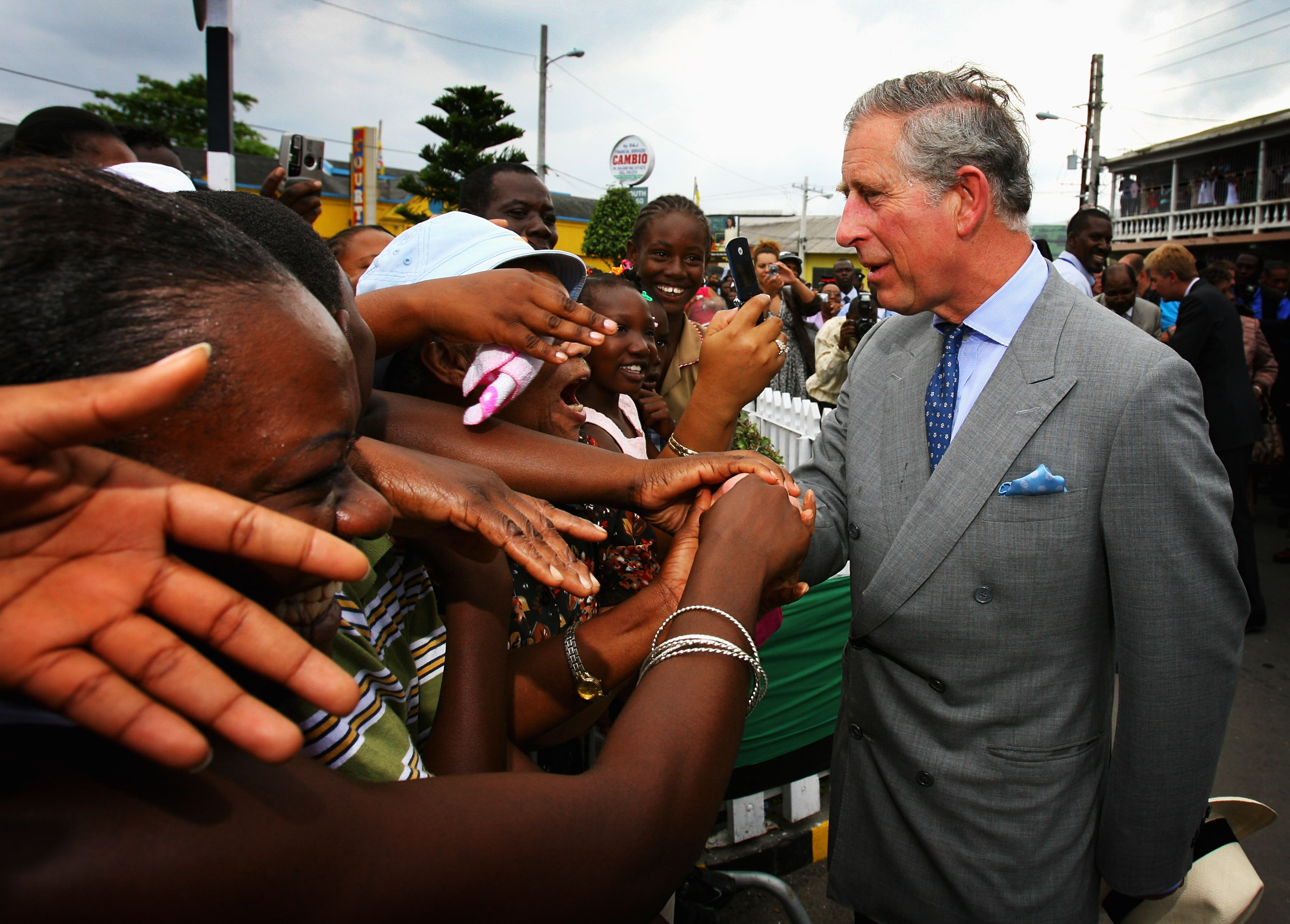
King Charles III tours the historic town of Falmouth, Jamaica, on March 13, 2008 | Source: Getty Images
Responding to these concerns, Malahoo Forte explained that Prime Minister Andrew Holness’ administration has adopted a “phased reform approach,” with judicial matters, including court reforms, planned for a later phase.
“For many years, a lot of work was done, but we have never progressed to getting the bill in parliament. To amend the constitution’s provisions on the monarchy, a bill must be tabled, as these provisions have the highest level of legal protection,” Malahoo Forte expressed.
Jamaica’s move is part of a broader trend in the Caribbean, where countries like Guyana, Trinidad and Tobago, Dominica, and Barbados have transitioned to republics. Around the time of Charles’s coronation in May 2023, an expert noted that support for the British monarchy in the region had significantly declined during his reign.
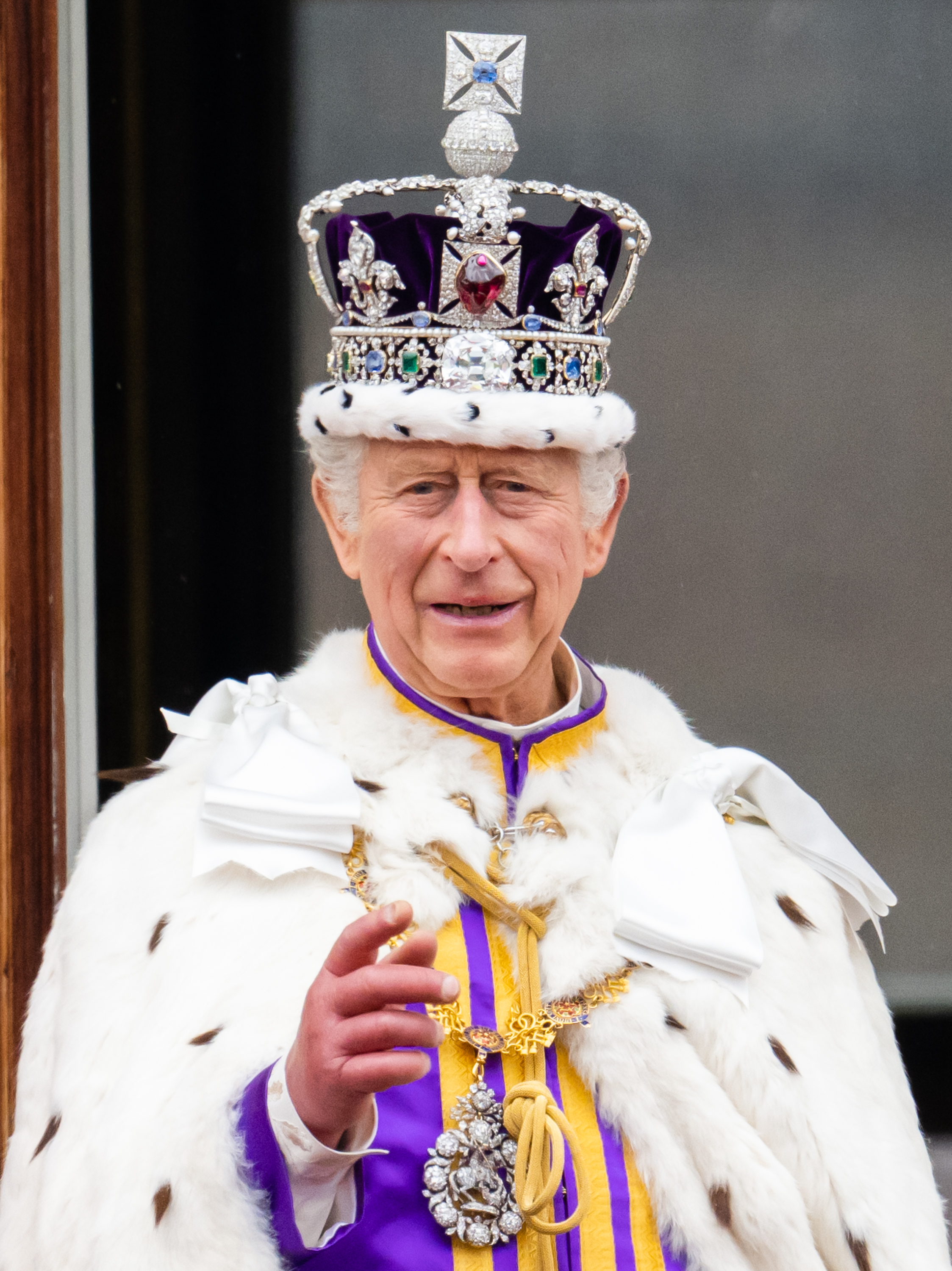
King Charles III appears on the balcony of Buckingham Palace after his coronation on May 6, 2023 | Source: Getty Images
“The acceptance [Jamaicans] had towards Queen Elizabeth has not been transferred to Charles. He is not a very endearing person. It makes it really difficult for me and for a lot of people in Jamaica to think that Charles III is king of Jamaica,” said veteran lawyer Hugh Small, a member of the constitutional reform committee.
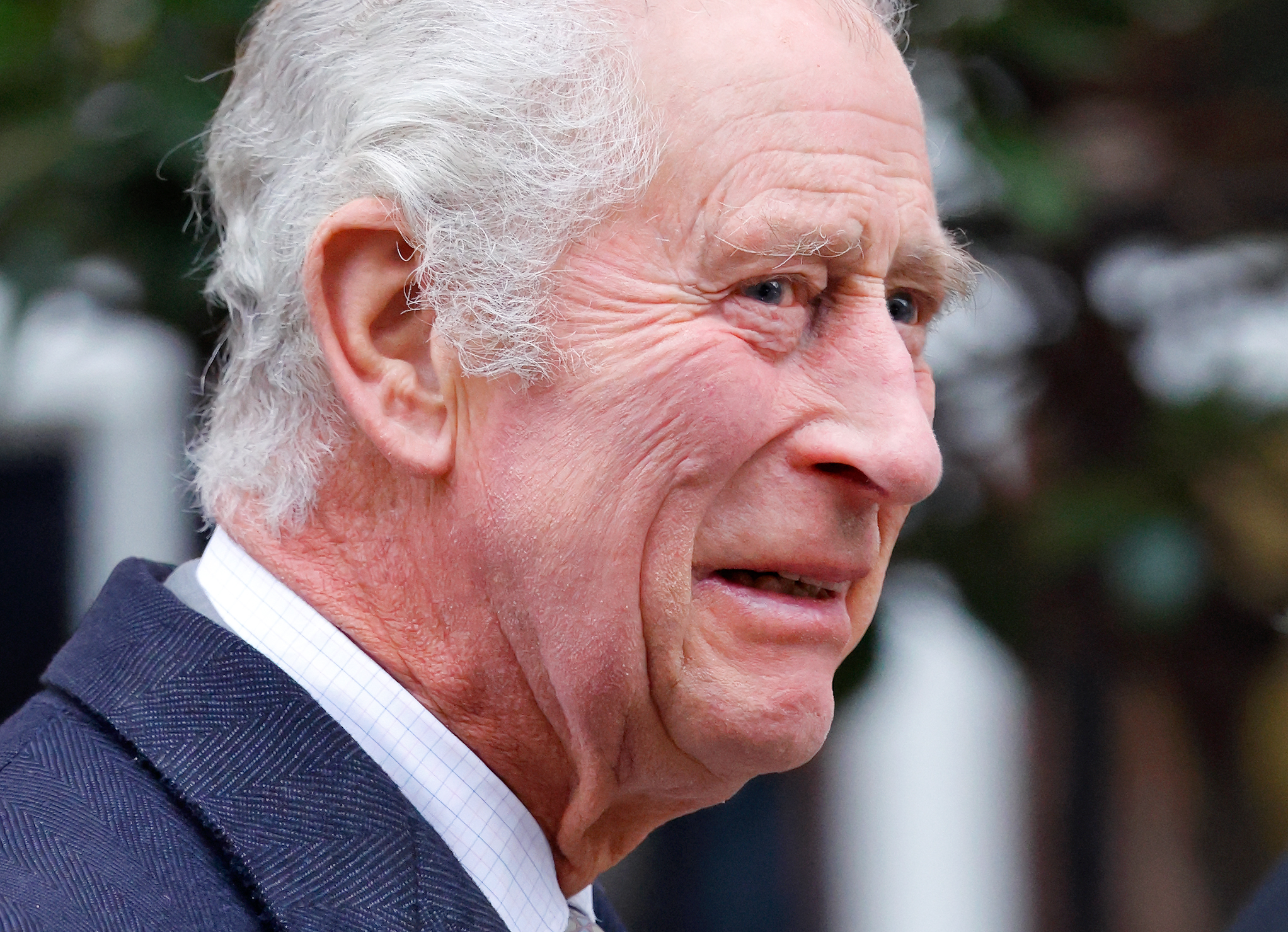
King Charles III leaves The London Clinic on January 29, 2024 | Source: Getty Images
Small also criticized the continued use of the UK-based privy council as Jamaica’s final appellate court, calling it incompatible with the vision of republicanism.
“I think that it would be inconsistent with our status as a republic to be going to the court of King Charles of Britain to ask for a little bit of justice. We need to end that relationship as quickly as possible,” Small suggested.
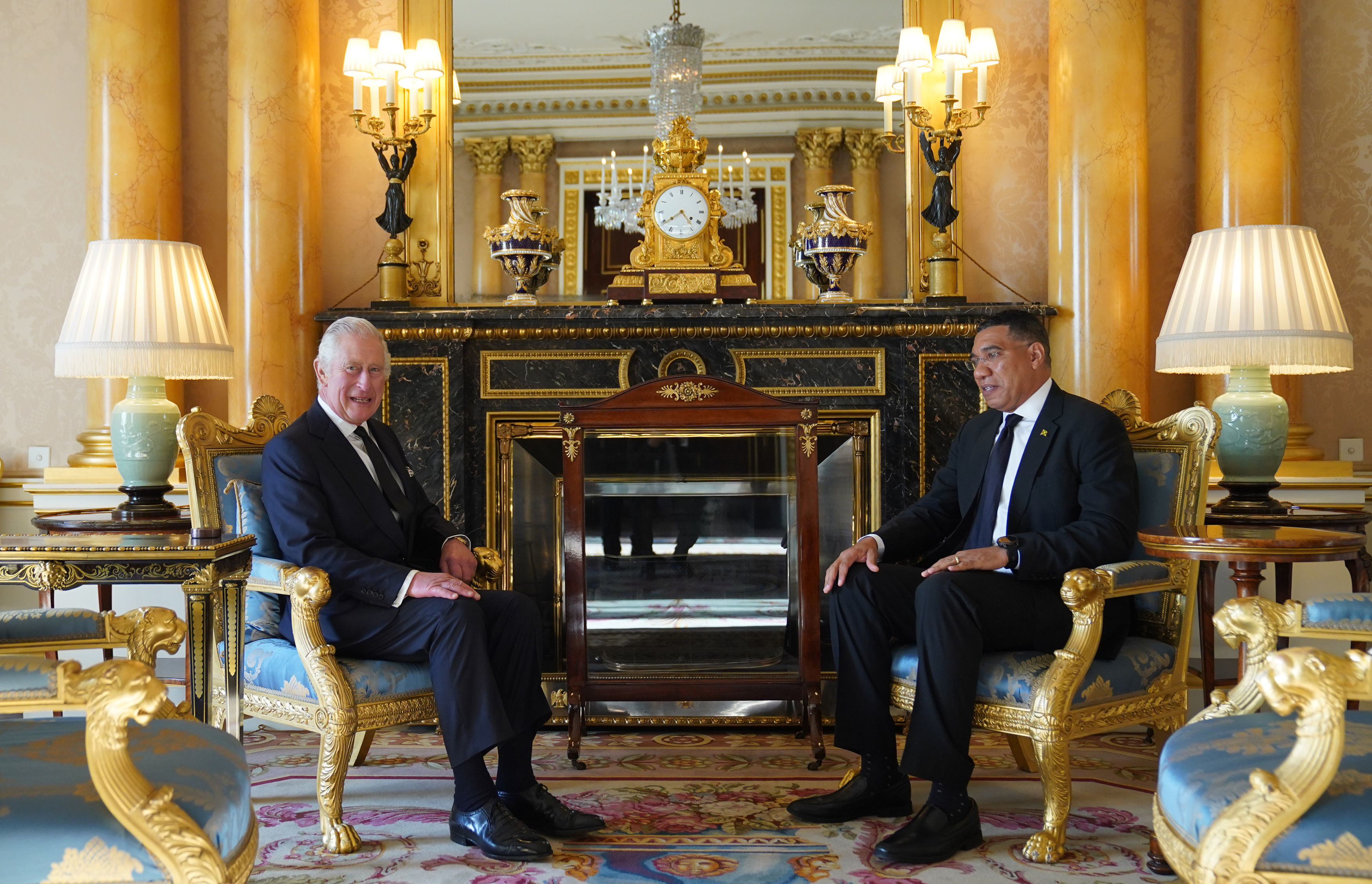
King Charles III meets Jamaican Prime Minister Andrew Holness at Buckingham Palace on September 17, 2022 | Source: Getty Images
The republican push also aligns with growing calls for reparative justice for the transatlantic slave trade. Dr. Sonjah Stanley Niaah, director of the Centre for Reparation Research, described the bill as “an important signal that Jamaica is now committed to this process.”
Niaah added, “We want to be able to support the advancement of true sovereignty, and I think this is what this move is about. That Jamaica is taking sovereignty seriously and sovereignty at the level of determining its own form of government.”
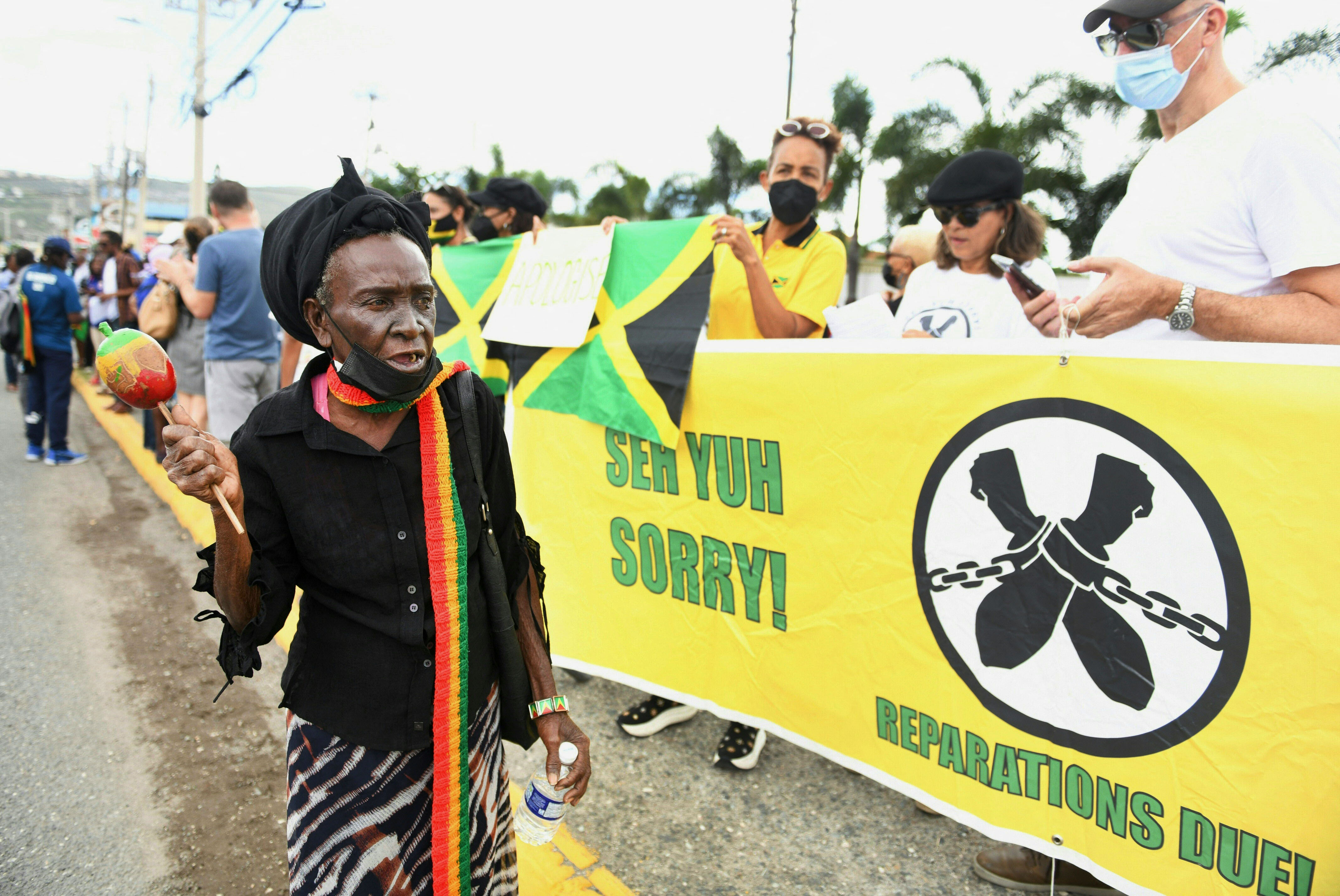
People protest outside the British High Commission during the Duke and Duchess of Cambridge’s visit in Kingston, Jamaica, on March 22, 2022 | Source: Getty Images
The proposed bill to remove Charles as head of state follows allegations of hidden financial streams tied to the royal family’s wealth.
A joint investigation by The Sunday Times and Channel 4’s Dispatches in November uncovered the vast real estate holdings of Charles and Prince William, revealing how these assets generate substantial private income.
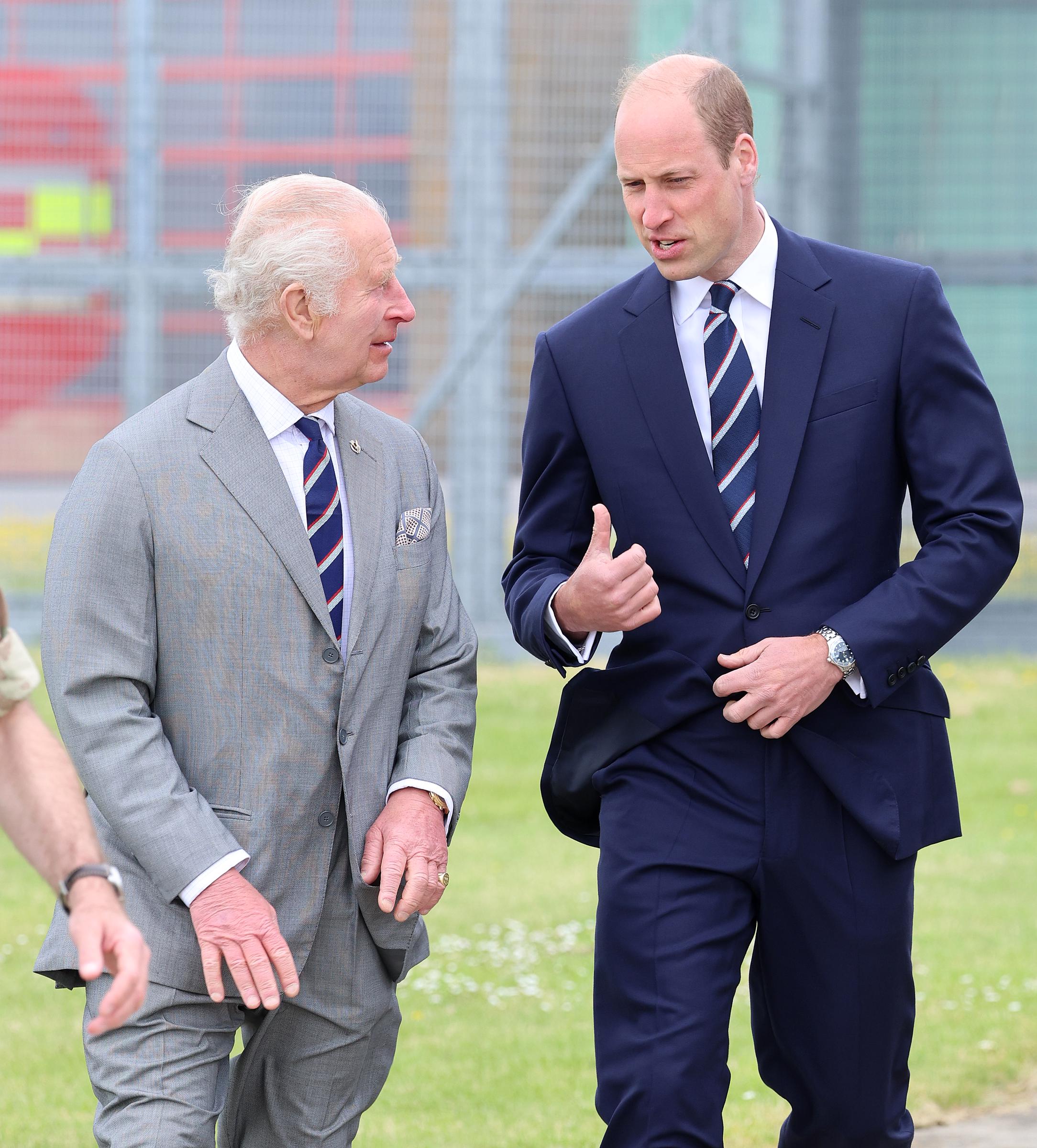
King Charles III and Prince William on May 13, 2024, in Stockbridge, Hampshire. | Source: Getty Images
This five-month-long investigation tracked the alleged business dealings behind the Duchy of Lancaster, managed by Charles, and the Duchy of Cornwall, under William’s stewardship.
By leveraging royal addresses to trace contracts and land leases, they pieced together a portrait of what the sources claimed was royal wealth sustained by commercial rents, exclusive land rights, and long-standing exemptions.
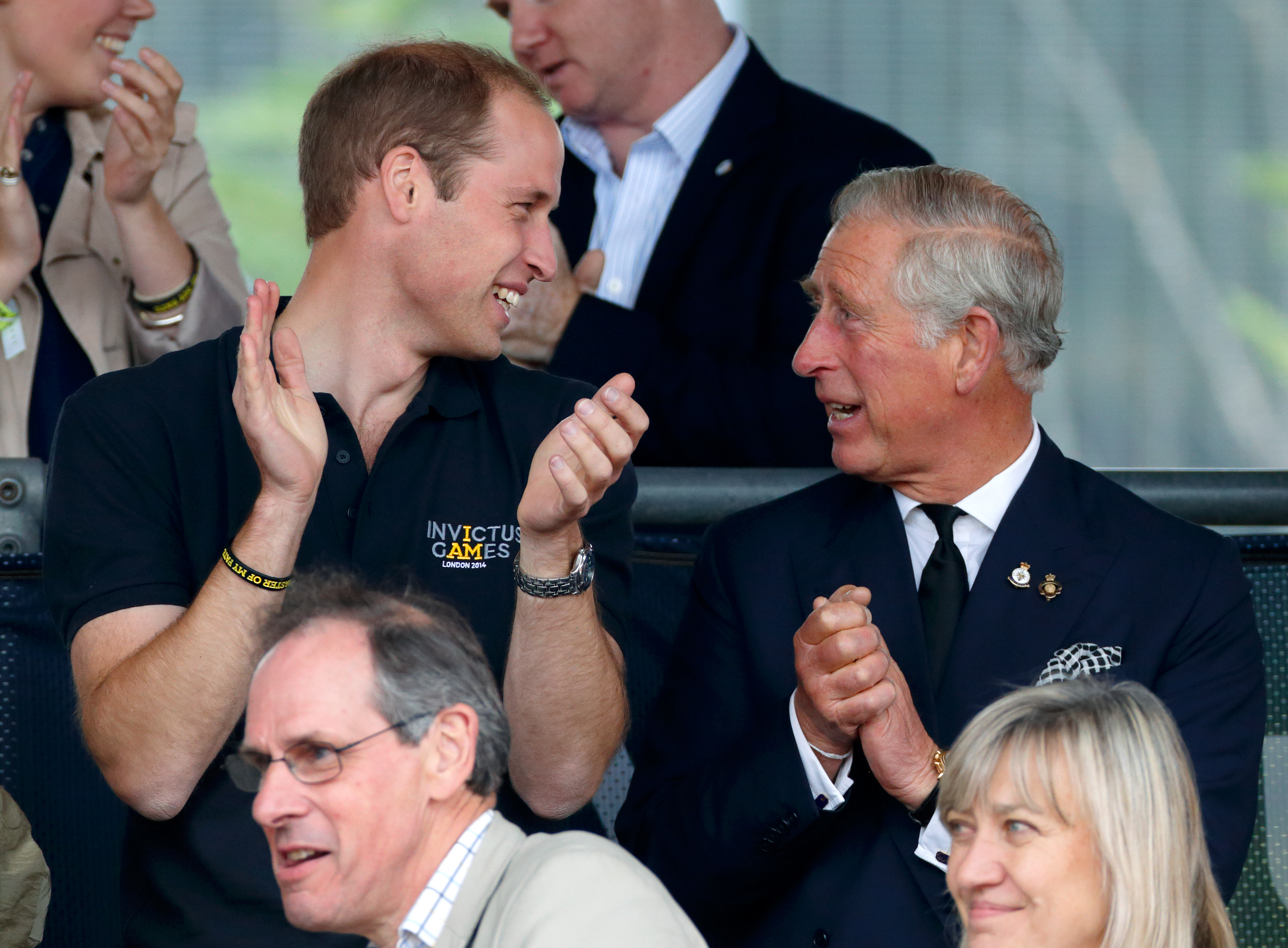
Prince William and King Charles III at the Invictus Games in London, England on September 11, 2014 | Source: Getty Images
The estates date back to medieval times when kings first claimed large stretches of land across Britain. Since then, the duchies have remained private property, held by the reigning monarch and heir, and are seemingly still earning millions today, long after they first came under royal control.
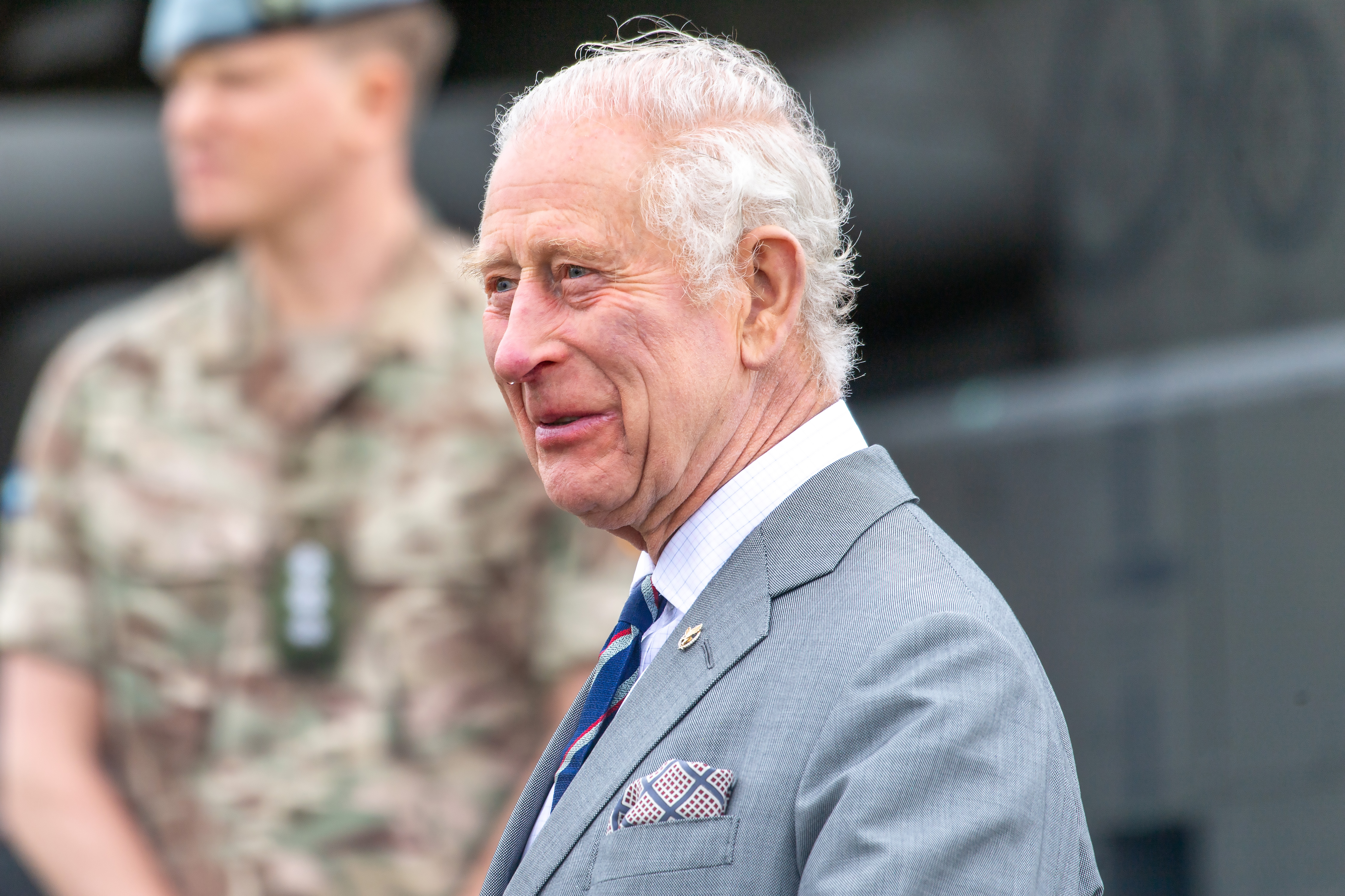
King Charles III at the Army Aviation Centre in Middle Wallop, Stockbridge, United Kingdom on May 13, 2024 | Source: Getty Images
Their exact size and value were closely guarded secrets, with even Parliament having little access to the full details. The report claimed that both duchies acted as commercial landlords, leasing land and property.
According to the sources, these estates earned income from people, businesses, and public services that used their land for years. They charged fees for things as varied as crossing rivers, parking cars, and even digging graves.
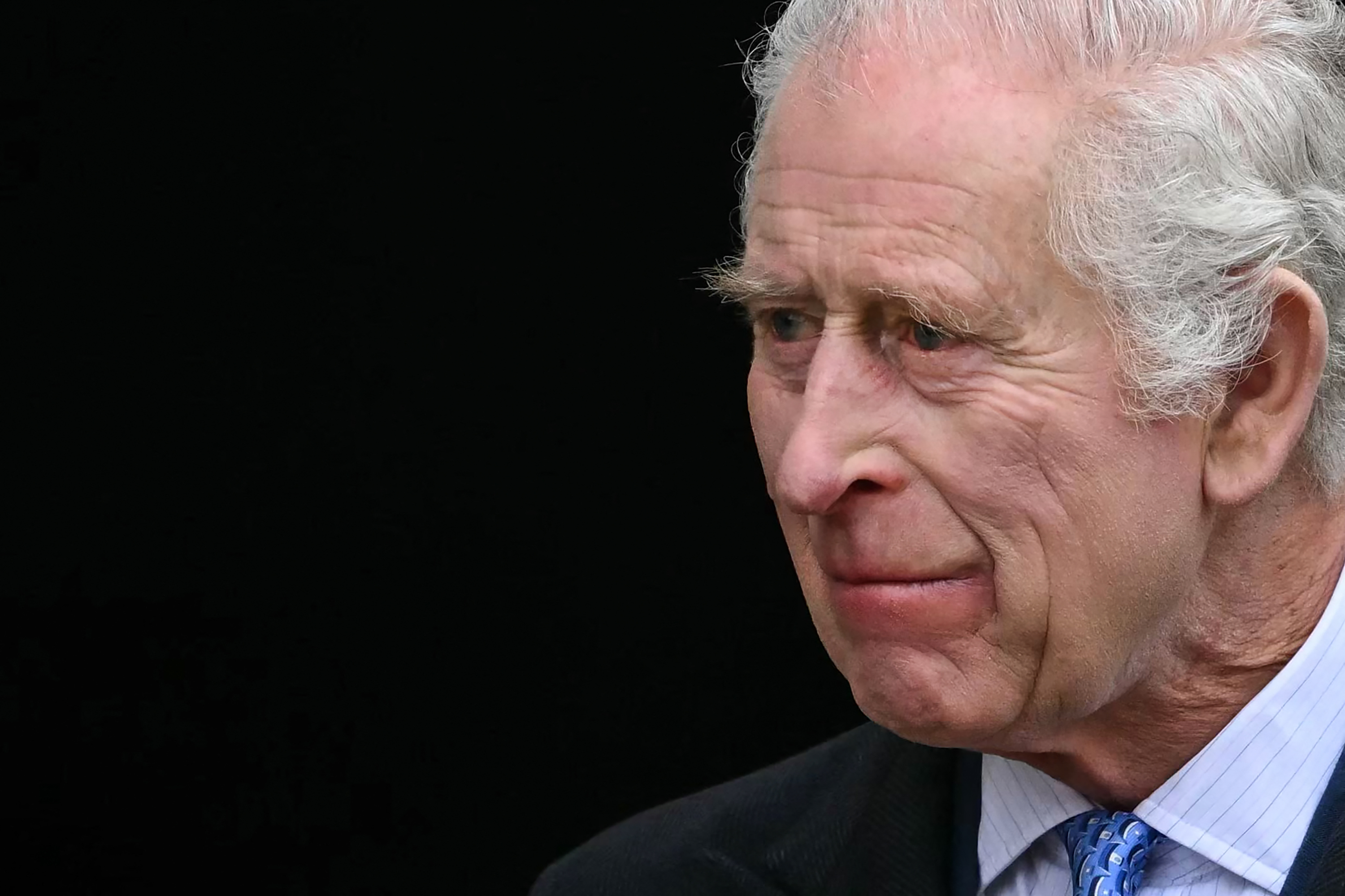
King Charles seen as he leaves St. George’s Chapel in Windsor Castle on March 31, 2024 | Source: Getty Images
The investigation claimed that these charges were part of how the duchies generated millions every year for the royal family, separate from the public funds allocated for official duties. The duchies collected revenue from both public and private entities.
For example, the British government paid fees for using royal land for the army, navy, and public services like the National Health Service (NHS). One case involved the NHS, which reportedly agreed to pay the Duchy of Lancaster $14.2 million over 15 years to rent a warehouse for ambulances.
Similarly, William’s Duchy of Cornwall was said to receive $1.94 million each year from the Ministry of Justice for the use of Dartmoor Prison. Beyond public services, the duchies also charged private companies, local councils, and even charities for access to royal land and resources.
This included fees for infrastructure like toll bridges, ferry routes, and pipelines, and extended to everyday uses like parking lots and wind turbines. These charges, as per the report, helped make the royal family one of the largest private landowners in Britain, generating substantial income separate from taxpayer-funded support.
Additionally, the report claimed that there had been a special agreement with the Treasury, meaning that the duchies were exempt from paying corporate taxes on these profits, which added to the wealth Charles and William received from their vast property holdings.
The Duchy of Lancaster and the Duchy of Cornwall both reportedly benefited from this tax agreement.
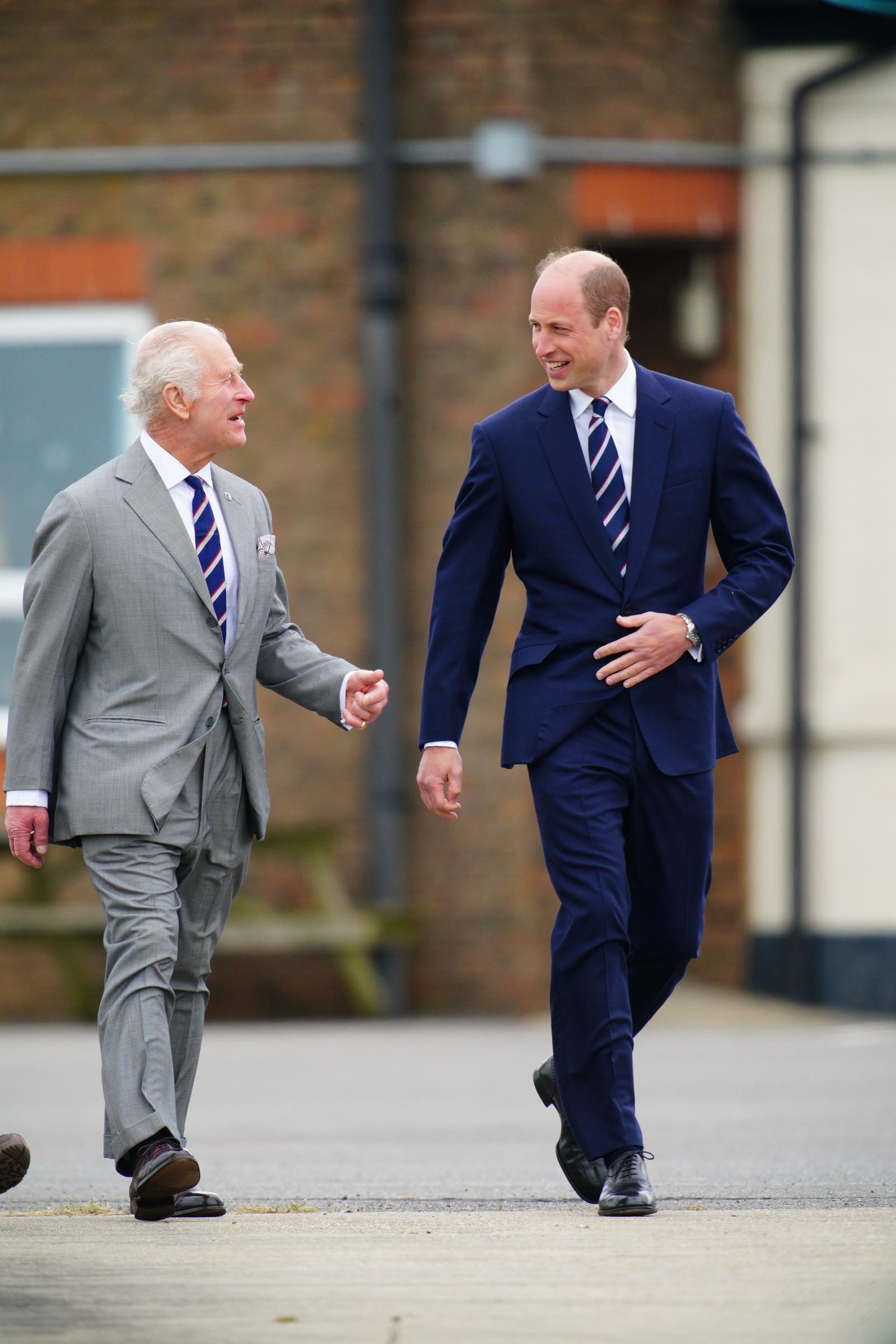
King Charles III and the Prince of Wales arrive for a visit to the Army Aviation Centre at Middle Wallop, Hampshire, for the King to officially hand over the role of Colonel-in-Chief of the Army Air Corps to William, on May 13, 2024 | Source: Getty Images
This exemption allowed Charles and William to keep a larger share of the profits generated by their estates. However, both royals made efforts to show they contributed financially by voluntarily paying income tax on their duchy profits.
Charles, for instance, paid a 45 percent income tax on the profits he received from the Duchy of Lancaster in 2021-2022, totaling $7.6 million. However, he reduced his taxable income by claiming deductions for expenses he deemed necessary for official duties.
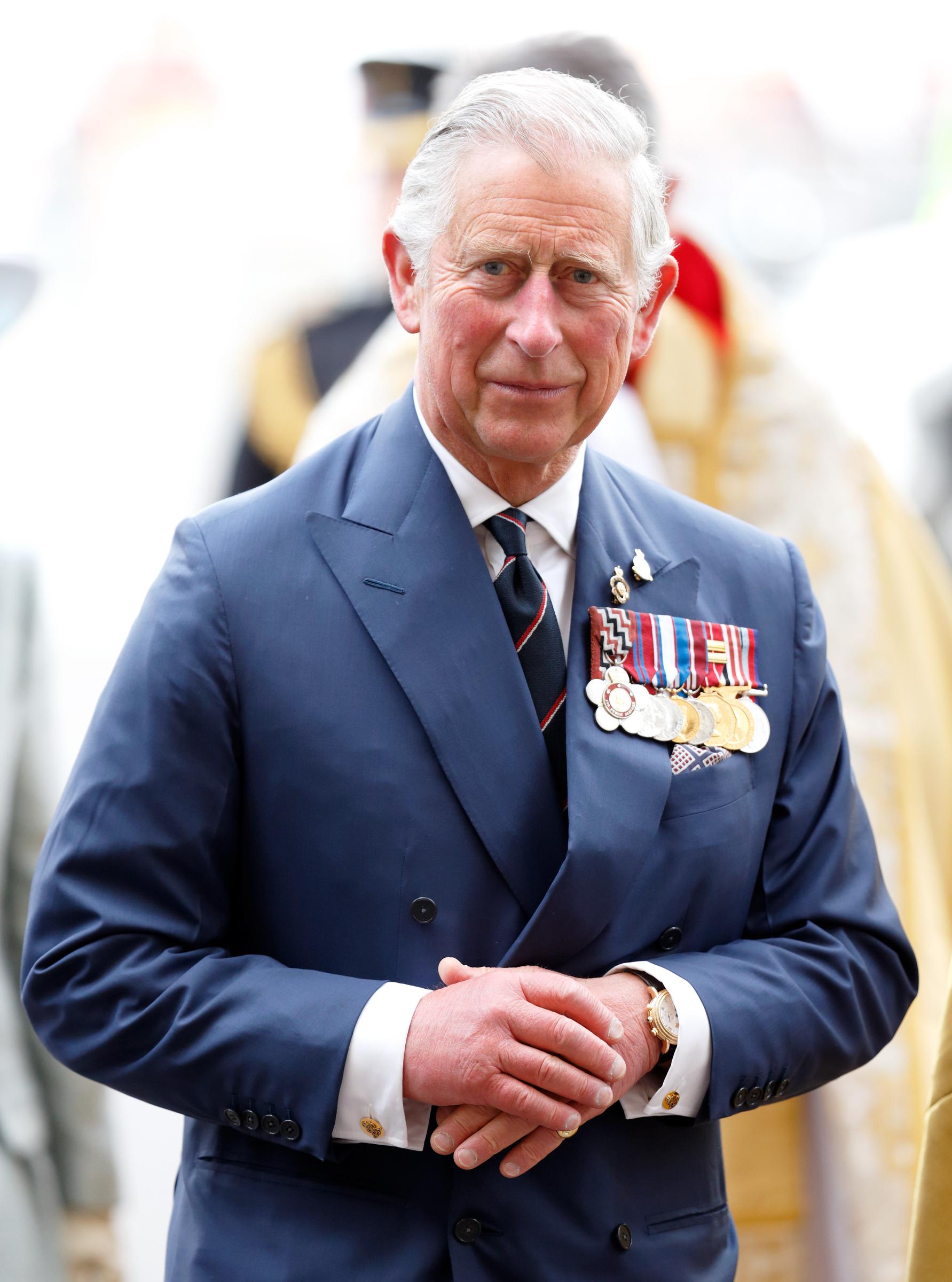
King Charles III on April 14, 2023, in Camberley, England | Source: Getty Images
William reportedly follows the same tax approach, though he has not disclosed his tax contributions since inheriting the Duchy of Cornwall in 2022. This voluntary tax arrangement echoes a similar approach taken by Queen Elizabeth II, who also withheld details of her own taxes during her reign.
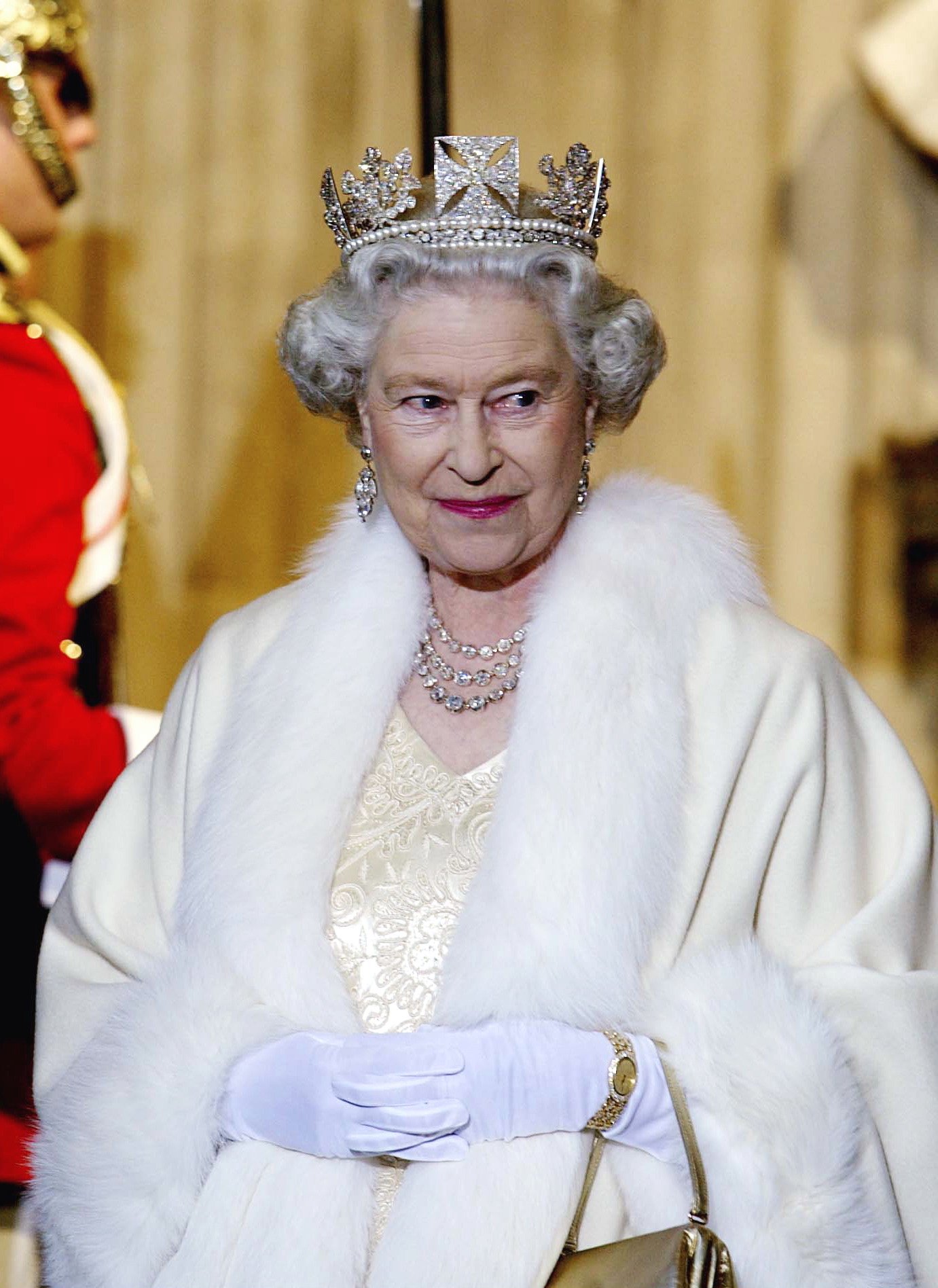
Queen Elizabeth II arrives at the Palace Of Westminster for the state opening of parliament in 1994 | Source: Getty Images
The report added that the Duchy of Lancaster and the Duchy of Cornwall were managed like commercial companies, with dedicated councils and executive teams overseeing daily operations.
While Charles and William have stayed involved, especially in major decisions, the estates were run by professionals who handled property management, investments, and environmental initiatives.
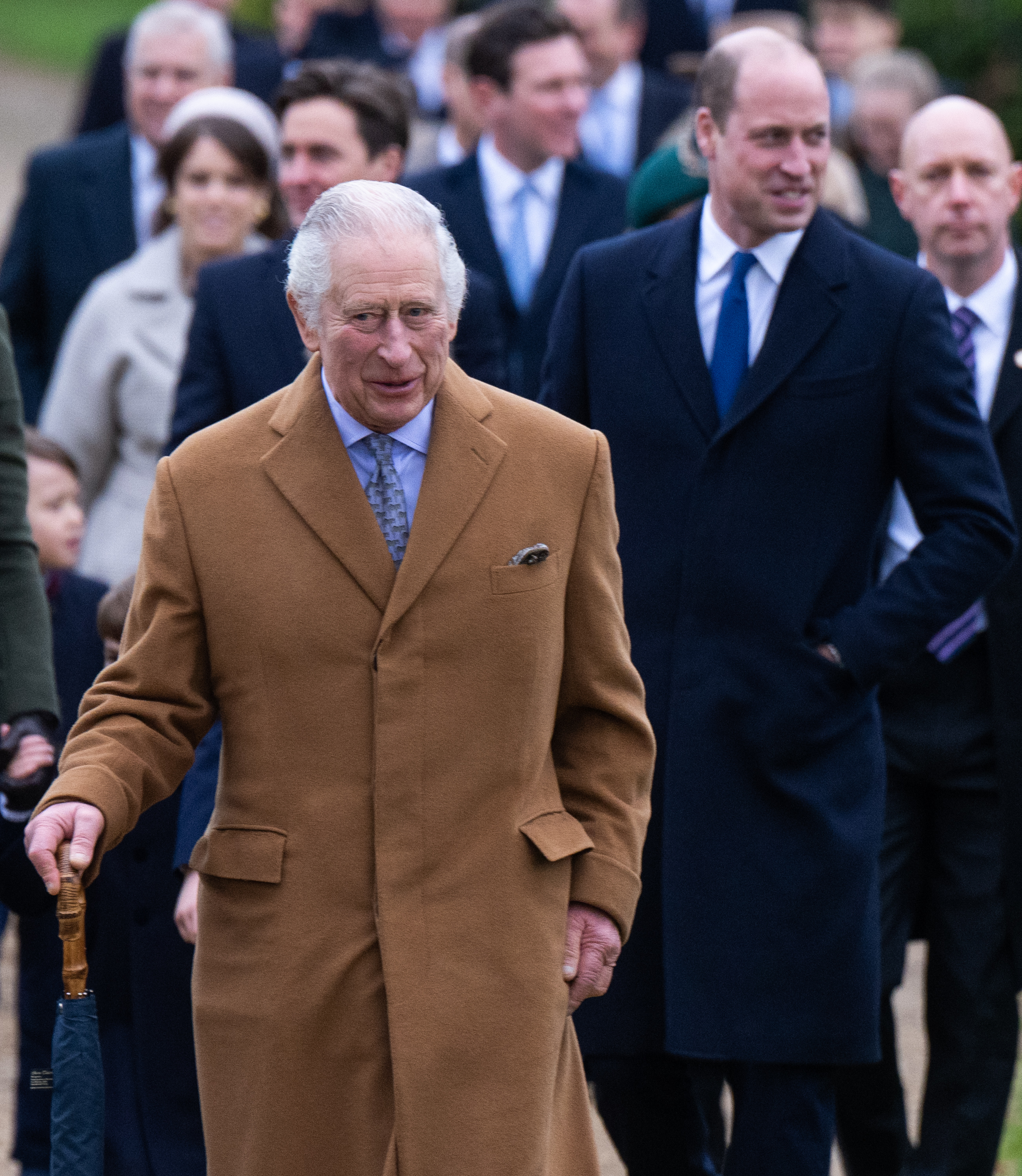
King Charles III and Prince William, Prince of Wales pictured on September 8, 2022 | Source: Getty Images
According to a spokesperson for the Duchy of Lancaster, the estate complied with all relevant UK laws. It focused on environmental improvements, aiming to upgrade its properties for better energy efficiency.
William, who took over the Duchy of Cornwall in 2022, reportedly set ambitious goals for his estate. He announced a plan to make the Duchy of Cornwall net zero by 2032, emphasizing both environmental and social impacts.
Under his leadership, the duchy was said to have begun investing in mental health support for its tenants and partnered with local organizations to address issues like homelessness in Cornwall. In addition to these initiatives, William introduced changes in estate personnel.
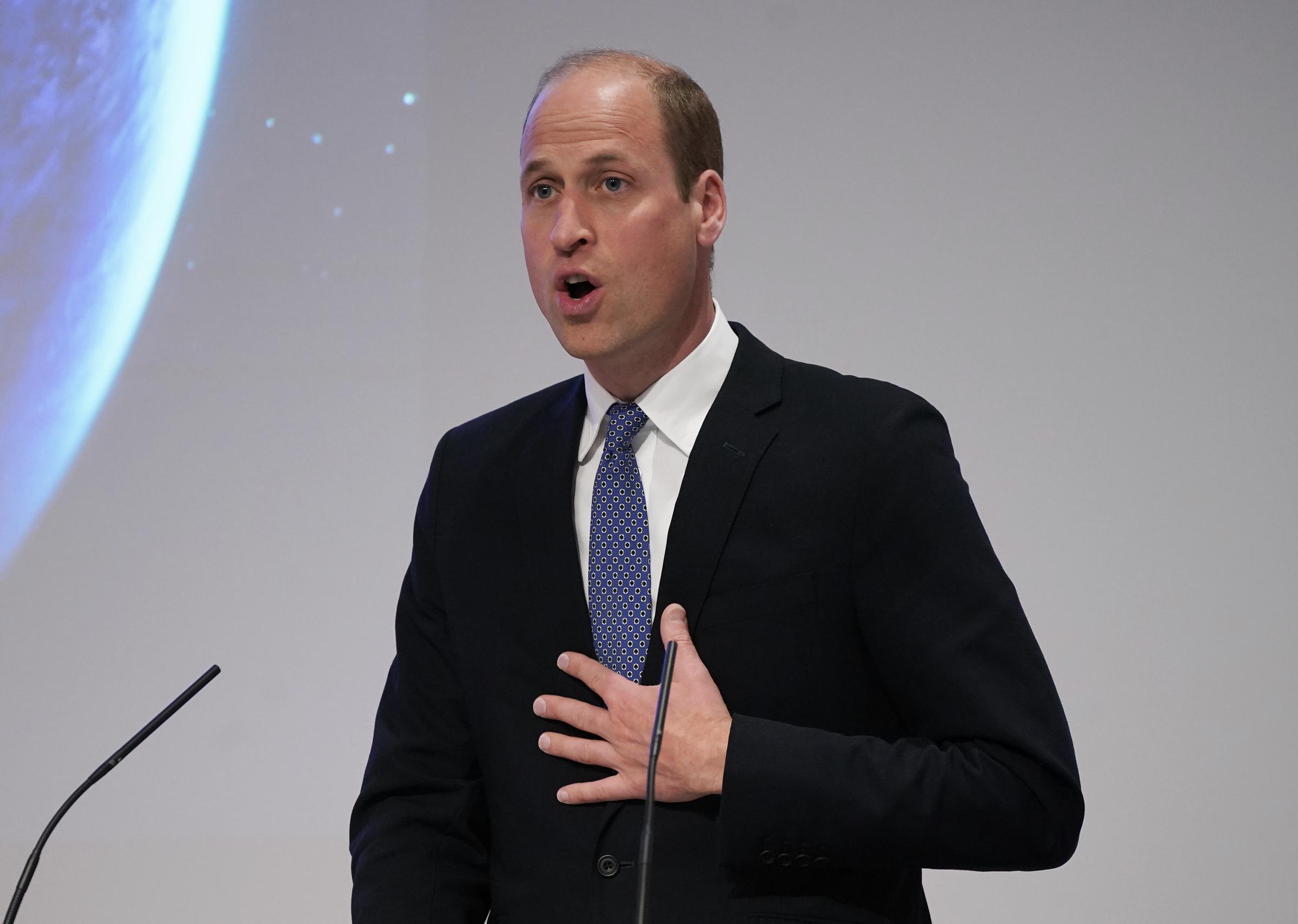
Prince William visits The Royal Society in London on May 16, 2024 | Source: Getty Images
Earlier this year, he removed Annabel Elliot, Queen Camilla’s sister and a longtime interior designer for the Duchy of Cornwall, from the estate’s payroll. This shift, along with other adjustments, reflected William’s efforts to put his own stamp on the duchy’s management and align it with his vision for the future.
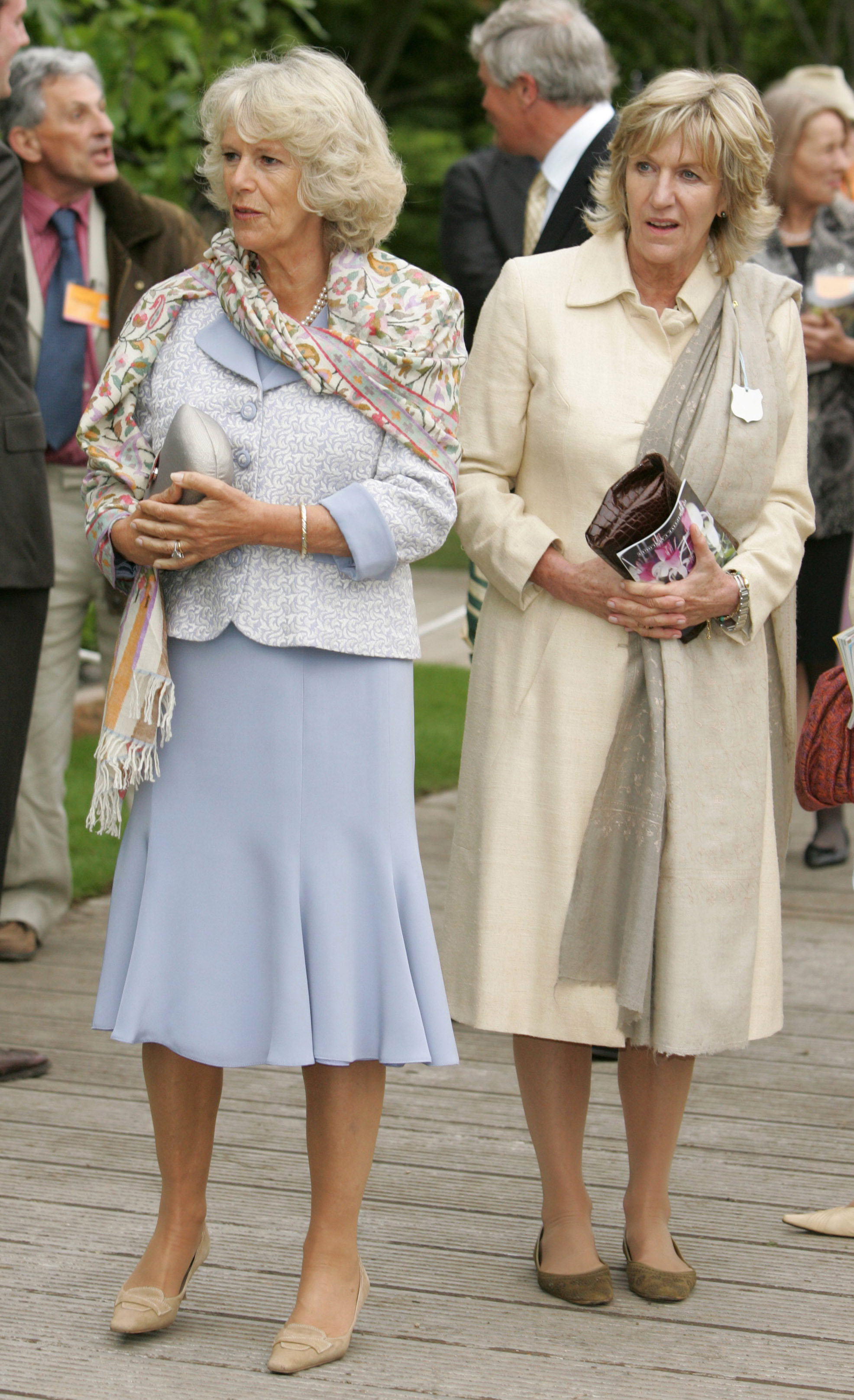
Queen Camilla and Annabel Elliot at the Chelsea Flower Show on May 21, 2007 | Source: Getty Images
Alongside William’s changes, Charles made impactful decisions within the family’s financial structure. In a notable move he ended financial support for his brother, Prince Andrew, distancing him from the royal purse.
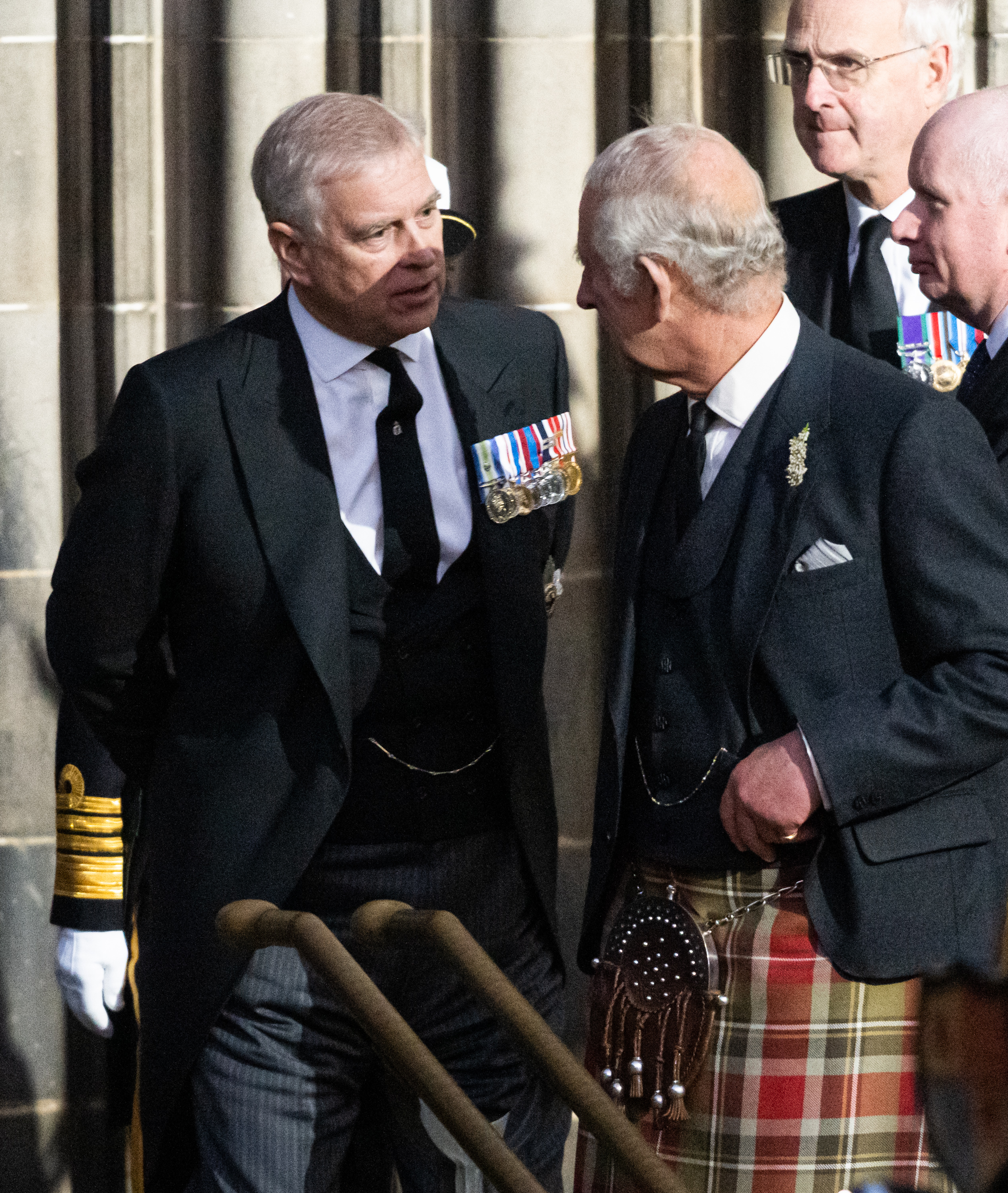
Prince Andrew, Duke of York and King Charles III on September 12, 2022, in Edinburgh, Scotland | Source: Getty Images
This decision underscored Charles’ intent to streamline royal finances, especially as he worked to present a more modern and financially independent monarchy. Together, these adjustments reflected a shift toward tighter control and accountability over the royals’ personal and public finances.
The investigation’s findings sparked a wide range of responses from the public, with social media platforms lighting up with mixed opinions on the royals’ income sources.
Online users reacted with comments like “Karma is coming knocking at their palaces [sic],” and “The greed is real.” Some saw the charges as just a “typical landlord/tenant agreement,” brushing it off as standard practice.
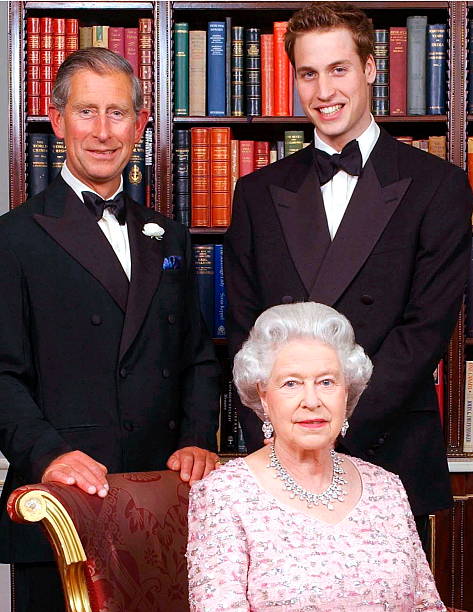
Queen Elizabeth II, Prince Charles, The Prince Of Wales, and Heir Prince William at Clarence House | Photo: Getty Images
In contrast, some defended the royals’ approach, “Good for them. At least someone knows how to balance the books.” Another said, “It’s no different than any city that charges for all of the things mentioned,” while another remarked, “Good for them…not our business.”
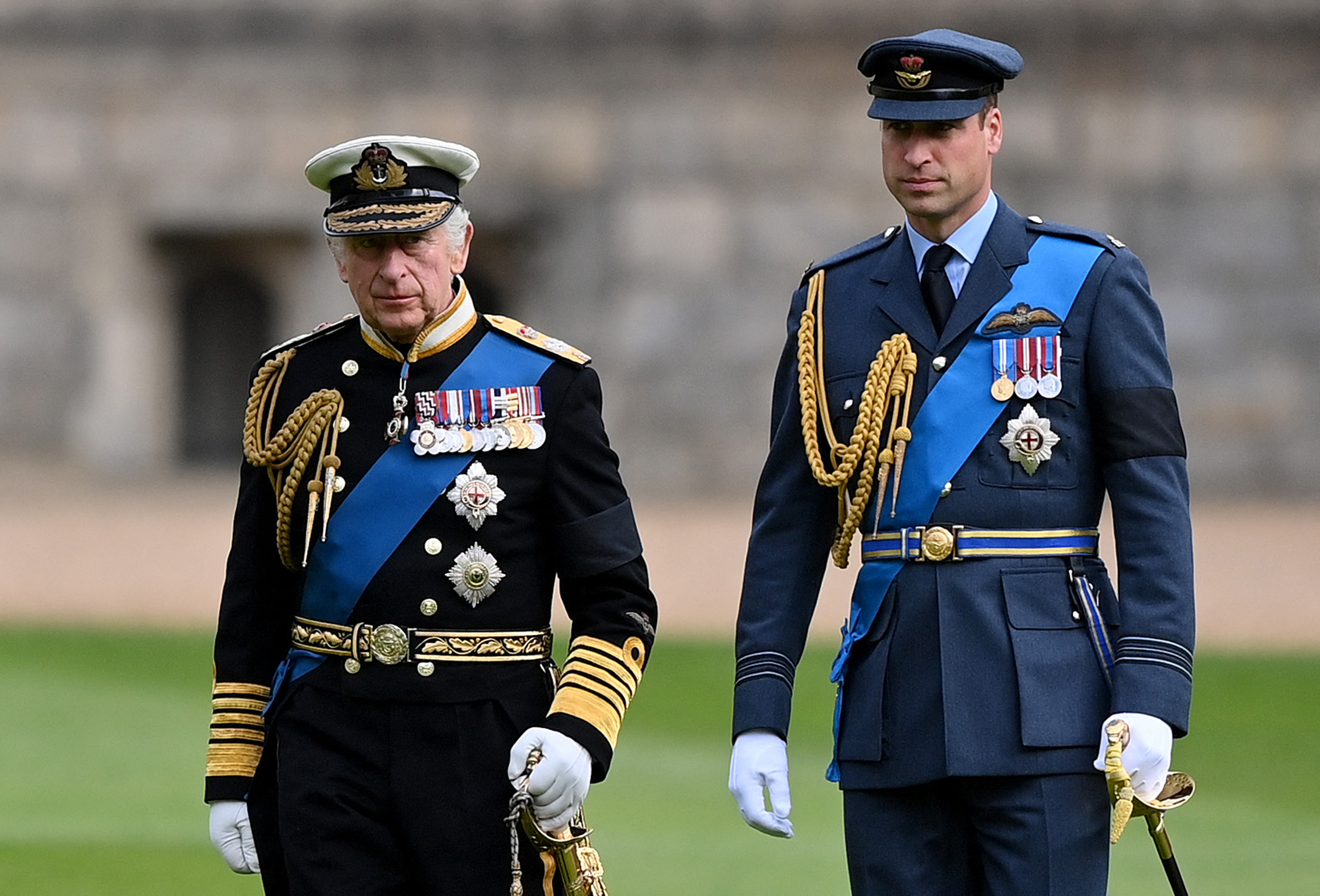
King Charles III and Prince William ahead of the Committal Service for the late Queen Elizabeth II in Windsor, England on September 19, 2022 | Source: Getty Images
For some, the royals’ alleged income sources show they’re running their estates just like any other business. For others, the proposed scale of their wealth raises questions about the monarchy’s place in modern society.
From Jamaica’s journey toward independence to revelations about royal wealth, these developments highlight enduring debates about power and accountability.
